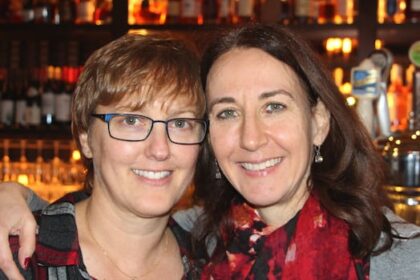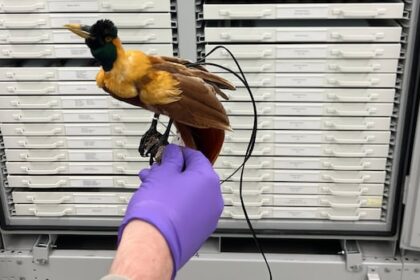NorthAt 85 per cent, the attendance rate for students at Ulaajuk Elementary School is well above territorial averages, according to Nunavut’s Department of Education. The school’s principal, Sandra Rutledge, credits after-school activities and community engagement for its high attendance rate. Principal Sandra Rutledge says Ulaajuk Elementary School has activities seven days a weekListen to this articleEstimated 4 minutesThe audio version of this article is generated by text-to-speech, a technology based on artificial intelligence.An image of Ulaajuk Elementary School in Pond Inlet, Nunavut, in April 2019. The school’s administrators have put in renewed efforts to try and keep the community’s children in the classroom. (Kieran Oudshoorn/CBC)Once that last bell rings, you’d think students would want to avoid school until the next morning, or after the weekend. But according to Sandra Rutledge, the principal at Ulaajuk Elementary School, it’s precisely the programs running at those times that are keeping Pond Inlet students coming back to classrooms.At 85 per cent, the attendance rate for students at the school is well above territorial averages, according to Nunavut’s Department of Education. Between sports, cooking, lego-building, card-playing, beading, and more, Rutledge says there are extracurricular activities seven days a week — yes, even weekends.Sandra Rutledge, principal of Ulaajuk school, is proud of the students’ attendance rates in the last couple of years. (Anaïs Elboujdaïni/Radio-Canada)“There’s lots of activities for the students to be able to participate,” she says. “They want to come to school. They want to participate.” These activities, she adds, help build a connection between students and the school. “The students feel safe, they feel welcomed.” The school also serves daily breakfasts, lunches, and snacks to its 302 students enrolled from kindergarten and Grade 6. More than 300 students are enrolled for the 2025-2026 school year in Pond Inlet. (Anaïs Elboujdaïni/Radio-Canada)The territory calculates attendance rates by dividing the number of days students show up to school by the total number of school days in the academic year. According to figures from the Department of Education, the attendance rates for elementary schools in the territory for the 2024-2025 academic year averaged 57 per cent in the Kitikmeot region, and 69 per cent for both the Kivalliq and Qikiqtaaluk regions. School as a community hubSoon after arriving at the school three years ago, Rutledge remembers noticing kids wandering around the community during a school day. She told vice-principal Karla Evaloakjuk, “I really would like to go out for a day and drive around and talk to the students to show them what we offer.” Karla Evaloakjuk is the vice-principal at Ulaajuk Elementary School. She says the school is an overall positive environment where people work together. (Anaïs Elboujdaïni/Radio-Canada)The school works with the RCMP and Family Services to identify children in the community that are not enrolled at school. Then they talk to parents about why their kids haven’t been coming to school and how they can address those barriers.“We’ve had parents in the past call me, and they’ve been embarrassed because they haven’t sent their child to school,” she says. “I’ll bring them in and say, okay, let’s talk about this.”Regardless of how many years of school a child has missed, Rutledge said when they come in and see the activities, they quickly feel welcomed.The community of Pond Inlet in October 2025. (Anaïs Elboujdaïni/Radio-Canada)Newly Education Minister David Akeeagok, says parents need to play a more active role in getting their kids to attend school. Looking at the territory as a whole, he says he’ll be looking for ways to motivate students to go to school, and how the department can help in those efforts. “As a parent I have some good ideas, but as a minister I need to listen to the staff,” he says. One of those ideas is to focus on the Arctic Winter Games as a way to entice students to stay in school. David Akeeagok, the newly-appointed minister of education, hopes parents take an active role in keeping their kids in school. (Anaïs Elboujdaïni/Radio-Canada)Rutledge says she wants to continue working to make Ulaajuk school a community hub for Pond Inlet. For Thanksgiving a few weeks ago, the school organized a community breakfast and served more than 1,000 pancakes. “We fed everyone and the students were serving and cleaning, and I was so proud of them,” says Rutlege. “Even some of the students that I normally know are a little bit shy.”They also planned a bake sale, and will be advertising the school’s food program in local stores — everything to try and get as many of the community’s children in classrooms as possible. Rutledge also recognizes that staff retention factors into student attendance and she says she tries to take care of them too. “I respect their prep times […] If they have to give up prep, I ensure that they get it back. It builds trust.” The school has 41 employees. She said school administrators worked day and night to attract and retain the necessary staff.ABOUT THE AUTHORAnaïs Elboujdaïni is a journalist with Radio-Canada and is currently based in Nunavut. Prior to that, she covered provincial affairs in Victoria, B.C. You can contact her at anais.elboujdaini@radio-canada.ca.
Thursday, 5 Mar 2026
Canada – The Illusion
Search
Have an existing account?
Sign In
© 2022 Foxiz News Network. Ruby Design Company. All Rights Reserved.
You May also Like
- More News:
- history
- Standing Bear Network
- John Gonzalez
- ᐊᔭᐦᑊ ayahp — It happened
- Creation
- Beneath the Water
- Olympic gold medal
- Jim Thorpe
- type O blood
- the bringer of life
- Raven
- Wás’agi
- NoiseCat
- 'Sugarcane'
- The rivers still sing
- ᑲᓂᐸᐏᐟ ᒪᐢᑿ
- ᐅᑳᐤ okâw — We remember
- ᐊᓂᓈᐯᐃᐧᐣ aninâpêwin — Truth
- This is what it means to be human.
- Nokoma











